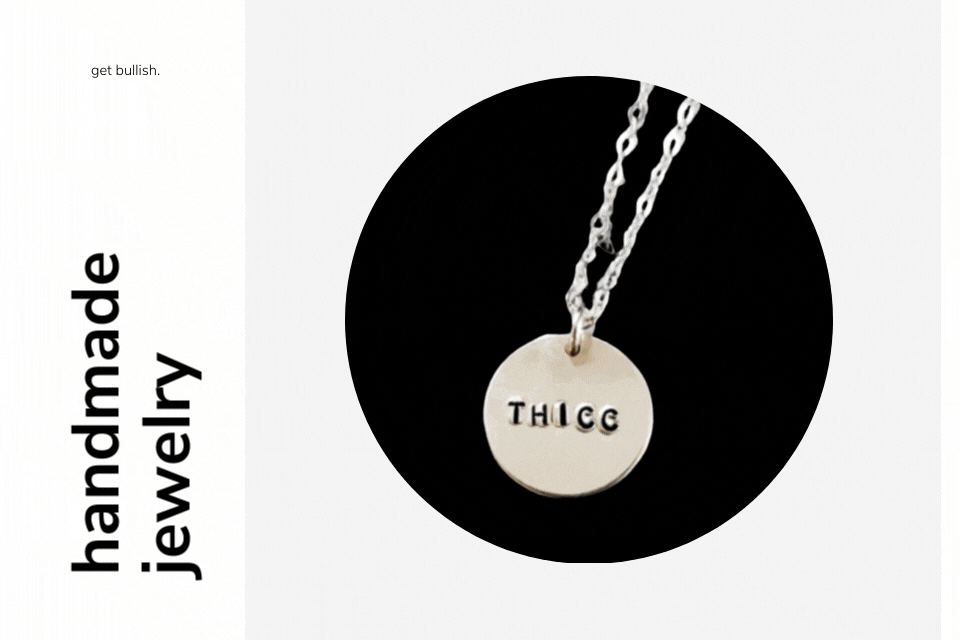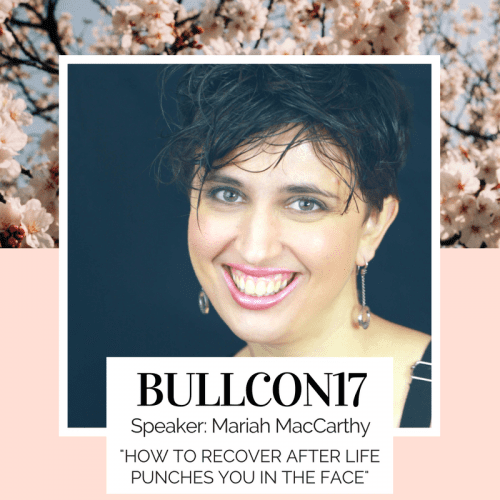This article is more than ten years old. It originally ran on a now-defunct website called The Gloss, where Bullish got its start. This post was created entirely by humans, as AI didn’t exist back then (but also: why would you want to read something no one could be bothered to write?) For more recent posts, try here.
I am convinced that most of what we consider sound financial values about budgeting and saving are illogical Depression-era holdovers.
At Barnes and Noble this week, I paged through a copy of Everyday Cheapskate’s Greatest Tips. Maybe I’ll learn something useful, I thought. And I did. Here is the one useful thing I learned:
Disposable razor blades get dull quickly because the metal blades begin to oxidize from the first time they touch water. They will last almost twice as long if you can slow down that process. Rinse razors after use and store them blade head down in a small cup of cooking oil. Light canola oil works best.
You hear that, ladies? Store your disposable razors in cooking oil. If you use an opaque cup (like one of those nice porcelain toothbrush cups that accompanies a matching soap dispenser), you might be able to do this without looking like you have early-onset Alzheimer’s and might also be keeping your bra in the crisper.
Here are some other tips from the book:
For each teaspoon of baking powder in a recipe, you can substitute 1/4 teaspoon baking soda, 1/2 teaspoon cream of tartar, and 1/4 teaspoon cornstarch.
I was astounded enough by this suggestion to look up the prices of all of these items on Freshdirect and convert them to per-ounce format: baking powder is 29¢ per ounce; baking soda, 7¢ per ounce; cream of tartar, $1.18 per ounce; cornstarch, 12¢ per ounce. I guess the cost of cream of tartar has gone up since FDR’s administration; subbing it in for baking powder would actually lose you money. But, even if it saved a few pennies: seriously, how many carbs can you possibly be hand-preparing in the first place?
When you buy a set of sheets, buy an extra queen-size sheet and make extra pillowcases rather than, um, buying extra pillowcases.
I looked this one up, too: save your needles and thread.
Are you spending too much money on American flags? Instead, try ordering discount flags from your Senator!
No. No, I am not spending too much money on American flags.
Here’s a good one:
It makes a lot of sense to carefully unwrap gifts, rescue the paper, and save it for later. But that tedious routine can annoy the people around you. Having said that, here are a couple of tips for how to re-use gift wrap so no one is the wiser. To remove folds and wrinkles from gift wrap paper, lightly spray the wrong side with spray starch and iron it out using the low and dry settings on your iron. Roll into a cardboard tube to store.
And:
Use an empty salad dressing bottle as a vase!
If you do this in a non-ironic way, it is simply not true, as suggested by the book, that “no one will be the wiser” — rather, you will look like a Depression-era grandmother cheerfully trying to distract everyone from the fact that dinner is potatoes and old boot leather again.
YOU CAN STORE YOUR ONIONS IN A CUT-OFF PANTYHOSE LEG.
There’s really nothing I can add here. You can store your onions in a cut-off pantyhose leg. I mean, you can….
Alright, enough with the comic relief. Let’s talk about some actual ways to save money.
Let’s start with the really obvious stuff: Pay yourself first sending part of your paycheck directly to savings! Credit cards and in-store financing are bad deals! Thrift stores sell cheap used stuff! Dry cleaning is expensive! Use a refillable water bottle! Stay-cations are cheaper than vacations! Entertain yourself via the free activities in TimeOut! Pre-game! Starbucks is more expensive than making your own coffee! If you only pay the minimum balance on your credit card, you end up paying way more for all the stupid shit you bought!
You’ve heard all that before, right? Okay, here are some perhaps less-obvious suggestions:
– The companies you buy drugstore items from sell the exact same products much cheaper in other countries. This may carry over to parts of your town with substantial immigrant populations. I used to live in East Harlem, where the local discount mega-store (3rd Ave and 118th, if you’re wondering) carried foreign versions of American-brand products: Nestle baby formula in a Spanish-language can, that sort of thing. Last time I was there, two years ago, I saw Colgate toothbrushes with Vietnamese writing on the package in three-packs for $1.99, so I bought 30. This is great if you have a lot of one-night stands: offering a new toothbrush to someone you may never see again is a beneficent way to send your erstwhile sex partner off into the sunset.
– Buying in bulk saves money even when you don’t have access to Costco because you live in a big city. If you are a young person and your mother still mails you holiday gifts of socks and underwear (mine sends Avon!), ask for a giant bottle of ibuprofen. Seriously, what parent is going to refuse you that? You’ll save six bucks every time you get cramps. The giant bottle costs about $20 and will last forever. By the way, I did learn from the Cheapskate book that medicines should NOT be kept in the bathroom — they degrade in warm, wet environments.
– I really, really love food. I love nothing better than a dozen oysters and a tall Hefe-Weizen after a lucrative day. I feel like I’m eating really expensively (I limit my oyster consumption more based on time than money — I’d say I do it about twice a month), but when I looked at the numbers over the course of a month, I’m really not spending the ridiculous amount of money I thought I was. Why? Because, when I’m eating really good food in restaurants, I am really, really into it, but when I am eating really inexpensive food, I am not thinking about food because I am doing other things. It’s good to have a staple food, the thing you eat when you’re not thinking about eating. When you pick a staple (ramen is fried and the broth packets are full of MSG; too much pasta is fattening; cereal for dinner is sort of sad; polenta is popular among Italian college students), you want something cheap but not damaging to your health. Mine is lentils. One of the best (non-Avon) things my mom ever sent me? A Paula Deen casserole dish. Throw in a 75¢ bag of lentils, some hastily-chopped carrots and potatoes, half of a leftover rotisserie chicken, etc., let this thing cook on low heat in the oven for a couple hours, and you’re in business for DAYS, and feeding yourself for pennies. (The point of a covered casserole dish is that you don’t have to watch or stir what’s in it — the lid keeps stuff from evaporating or thickening too much). Just put the whole dish in the fridge later that night and put it back in the oven the next day (or ladle some of this into a to-go dish for work). I find that if you’re forcing yourself to eat dollar store mac-and-cheese, you feel deprived, but if you’ve made something that’s actually pretty good for you and you’re eating it while making money, reading a book, etc., you don’t even notice. If your food is boring, add hot sauce, or scoop a bunch of it into a frying pan with olive oil and garlic and lots of salt and pepper. That’ll fix a lot of budget cooking.
– Many people swear by libraries. My best friend points out that New York has possibly the most comprehensive library system in America, and that you can order any book and have it sent over to your local branch, where it will be labeled with your name and waiting for you on a shelf. Even if the books are late, fines are just 25¢ per day. I have to admit that, while I am happy to pay taxes so that knowledge may be shared, for free, with everyone, including (and especially) people who do not have internet access, I personally am skeptical of library books because of germs. Even my BFF had to admit, “You’re right, there’s no way to know that other people haven’t read those books on the toilet.”
– You can just call your credit card company and ask for a lower APR. You could try saying that you’re considering switching to another card and transferring over your balance. Sometimes this works! You have nothing to lose but part of an hour on hold.
– I’m sure everyone’s already aware that you can watch TV for free at Hulu, but I was also able to get a $15 cable from Radio Shack that hooks my laptop up to my TV so I can see Hulu shows on the big screen. I also have an iTunes season pass to Mad Men. What else does a person need? Certainly not a monthly cable bill. I see enough reruns of How I Met Your Mother on airplanes. Cable is actually extremely expensive when you realize not just how much money you’re spending, but how much time you’re wasting that you could be using to make money.
– Relocate to Mexico City, Quito, or Buenos Aires for a few months. If you are unemployed, or a freelancer who can work from anywhere, why pay New York rent all twelve months of the year? You can get most of the benefits of being in New York (knowing the right people, furthering your career, attending all those Shakespeare in the Park performances) by living in the city most, but not all, of the time. If you live someplace in America, but much less exciting (to you) than New York, this goes double: once you pay for a plane ticket, you can live super-cheap and more excitingly in many other parts of the world (I mention the cities above because they are in well-developed areas with European-style dining and amenities, but the list of the world’s cheapest cities also includes Tunis, Addis Ababa, Chennai, Kathmandu, and many more). I decamped to Buenos Aires for all of January, 2009, rented an apartment off Craigslist for the month, and made a profit on my vacation by writing math problems from a variety of charming bookstore/cafes, some of which will keep you supplied with empanadas as you work. Try this for a month or two between leases. Considering that you can email and Facebook from anywhere, you don’t necessarily even need to tell anyone you’ve left.
– Denying yourself little things several times a day is sometimes necessary, but really not fun. (It’s worse in New York, because in a walking culture, you are can’t even get from home to work without walking past dozens of attractive places of business; at least in the ‘burbs, you can drive from your house to your job and not really be tempted by seeing the outside of the mall). If you’re a high-achieving type person, doing something halfway is demoralizing: why exercise unless you can GO TO THE OLYMPICS?! So, if you can become really ambitious about saving money, you might be more motivated to do so. Fortunately, plenty of people are already using online financial programs and you can compete with these people and try to win! This post on Budgets are Sexy talks about why it’s important to track your net worth. This NYT article contains links to a variety of websites that will allow you to track your net worth in an ambitious manner. Knowing your daily salary is helpful to keep purchases in perspective. A person thinking in annual, pre-tax dollars might say, “I’ve been working hard and I deserve this $300 item.” A person who has taken a look at her last paycheck and divided the after-tax amount by 14 days might say, “I make $97 after-tax dollars per day and that object is not worth three days of my life.”
– If you are a freelancer or entrepreneur, rather than thinking in terms of a daily salary, think in terms of a daily target. When you get a $5,000 contract to do something, your pay rate is not at all determined yet: if you do the job in 30 days, you are a $166 a day worker. If you do it in 20 days, you’re a $250 a day worker. Calculate a target simply by dividing your rent and other expenses by 30 (or 22, if you only want to count 5 workdays a week) — that’s the base daily amount you need to survive. If you want to buy cool shit, you need way more than that. Just as some people count reps at the gym, I know every single day how much money I’m making (when you charge for your services by the hour, it’s pretty easy to keep track). If I’ve booked less time than usual on a particular day, that’s my cue to make up for it by jamming out some pages on any of the writing projects I get paid to do; if that amount is $0, I make sure to have some serious fun instead (I recently took a boat ride from the South Street Seaport to the Statue of Liberty along with a bunch of European tourists!) I think that’s a big key to the good life: the best days are extremely lucrative ones, and extremely fun ones. Eliminate all the ones in between.
– Going to bed early saves on drinks at the bar, booze and munchies at home, spontaneous iTunes movie rentals, late-night online shopping, and even utilities. (People eat much more expensive food late at night! With the lights on and everything!) Imagine what would happen if you went to bed two hours earlier and got up two hours earlier — what you normally do from 11pm-1am looks very different from how you would probably spend your time from 6-8am. That’s when novels get written, side businesses get founded, and Fergie-abs get sculpted! (You can save this tip until you’re kind of old. I understand).
There you go — how to save money without saving old bread bags and making dresses out of potato sacks. A couple of good places to go from here: Mint.com, a popular budgeting and financial website, and Learnvest, a financial education site for young women. Not that a potato sack dress couldn’t have a certain hipster appeal if you played it right.










